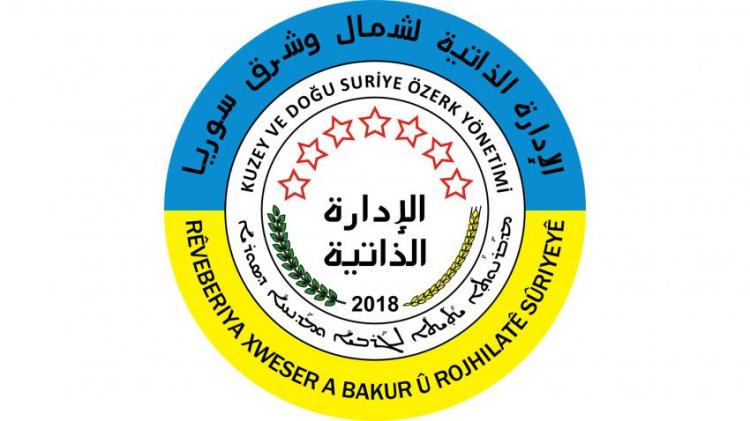Qamishli and Damascus, hidden rifles and heated controversies
Hassan Bahaadin
“The separatist terrorist militias, called SDF, continue their terrorist, criminal and repressive practices against the Syrian people that are operating in line with schemes by the United States and Israel”.
This is a short extract from the sent letter by the Ministry of Foreign Affairs and Emigrants of the Syrian government, on Sunday 15 September, to the United Nations Secretary-General and to the President of the United Nations Security Council, complaining about what it had called repressive practices of the SDF against the Syrian people.
The ministry described the SDF as “terrorist” in an unprecedented verbal escalation against the forces, which they currently control about 30% of the Syrian territories.
The Syrian Democratic Forces were formed at the end of 2015, where their essential mission was to defeat the terrorist Islamic State group (ISIS). These forces had managed to take control over several areas from the terrorist group, backed by the US-led Global Coalition to fight ISIS, in March 2019 the SDF declared the full control of ISIS last stronghold in the east of Euphrates.
Naji al-Obeid, the Head of the media office in the Syrian People’s Assembly spoke to North-Press from Damascus, repeating the description of SDF as terrorist militias, he said: “Forced recruitment is illegal, theft of citizens’ properties and the imposition of curricula other than the Syrian legal curriculum, all are condemned practices and suggest the separatist tendencies of these militias”.
The Democratic Autonomous Administration of north and eastern Syria teaches a curriculum that it has developed on its own, called: “Study by the mother tongue”, where each component within the region is taught in its mother tongue language, as well as its “self-defense duty”, whereby every young man between the ages of 18 – 35 from the regions of north and eastern Syria is forced to what Damascus calls “the compulsory recruitment”.
Al-Obeid refused to comment on the readiness of Damascus for dialogue with the SDF or to talk about the conditions of Damascus for dialogue, ending his talk by threatening the SDF that every inch will return to the legitimate Syrian state, despite the continued support of the United States for them.
Media reports had published several dialogue sessions between the Syrian Democratic Council (SDC, the political wing of the SDF) and the Syrian government in the past year, but those dialogues failed to produce any results, accusing the Syrian government of intransigence and adherence to the old mentality.
The Kurds (the second largest nationality in the country in terms of population, concentrated in northern Syria, Qamishli / Qamishlo is known as a capital for them), accuse the Syrian government of depriving them from their national rights, such as stripping about 350 thousand Kurds of the Syrian identity, following the population census in 1962. In addition to preventing the Kurdish political movements from carrying out their activities and representation in the Syrian parliament.
The relationship between the Autonomous Administration of northeastern Syria and the Syrian government has long been ambiguous, where the two sides share control of the northeastern cities of Qamishli and Hasakah, and they did not emerge as enemies during the years of the Syrian conflict.
However, this relationship did not turn into a friendship either, as there were clashes more than once between the two sides, the latest of which was the killing of 14 members of the Syrian Air Defense Forces by the Internal Security Forces (Asayish) of the Autonomous Administration in Qamishli last summer.
Hekmat Habib, the vice president of the executive committee told North-Press: “The statement of the Foreign Ministry of the Syrian regime is fabricated as usual, and has nothing to do with truth”.
Regarding the time of releasing the statement of the Foreign Ministry, Habib stated: “The statement is a flattery to Astana guarantors at the expense of the Syrian national sovereignty, while we were waiting for Damascus to issue statements condemning the Turkish occupation of northern Syrian regions, and the systematic demographic change that Turkey is conducting inside the Syrian territories”.
Turkey currently controls more than 10% of the Syrian territories, the regional and international human rights organizations accuse Turkey of committing war crimes such as “kidnapping civilians and seizing their properties”, the latest of which is the United Nations Commission of Inquiry report regarding the situation in Syria.
Habib concluded that they are open to dialogue to find a solution for the Syrian crisis, but it seems that the regime has no intention to accept a democratic project, and we reiterate that we are committed to dialogue as a way to solve the Syrian crisis. “We call on Damascus to reconsider its stance,” he said.
The Autonomous Administration of north and eastern Syria reiterates that its project is national and aims to guarantee the rights of all components, while the Syrian government fears the acceptance of this project and calls it “separatist”, as its acceptance will change the central rule that has been dominating in Syria for decades.
Observers believe that the form of the relationship between the Autonomous Administration and Damascus depends on the final solution to the Syrian crisis, especially in the presence of the international countries supporting each one of them.

